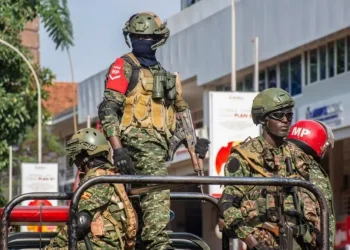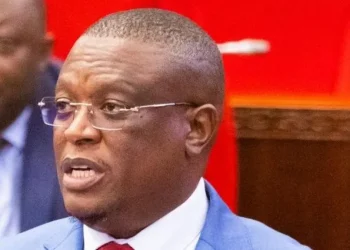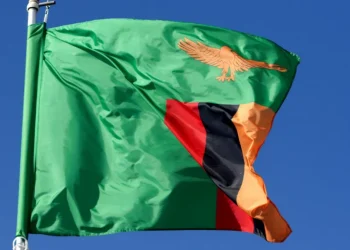Voting is under way in parliamentary elections in Eswatini, where King Mswati III continues to rule as Africa’s last absolute monarch.
Political parties in Eswatini have been banned since 1973 and candidates must contest the polls (which happen every five years) as individuals, a situation which has forced individuals seeking elected positions to run as independent candidates.
Human rights campaigners have dismissed the vote in Eswatini as a farce. Reports from the capital, Mbabane, indicate that calm prevailed at the polling stations on Friday morning.
King Mswati III has also encouraged people to turn out to vote to ensure peace and stability is maintained.
The 55-year-old king, who inherited the throne in 1986 aged just 18years, will select 10 more representatives. The king’s polygamous and opulent lifestyle characterised by luxury cars and watches, has long faced criticism. More than a third of the country’s 1.2 million people live below the international poverty line.
Two members of parliament were among those jailed in connection with pro-democracy protests two years ago, while a third fled into exile during which dozens of people were killed.
The monarchy’s crackdown on dissent and the country’s political nomination system, which involves traditional chiefs choosing candidates, often produces elected officials supportive of the monarchy. Ahead of the vote, some Swazis expressed scepticism that the elections would bring about change, as the parliament cannot criticise or take action against the executive or king.
In 2021, student-led protests that began over alleged police brutality morphed into calls for political change. At least 46 people died in a series of clashes between the security forces and demonstrators, according to Human Rights Watch. The government has disputed this figure and said that the police were responding to violent attacks. This is the first poll since 2021’s deadly pro-democracy protests.
Parliament plays an advisory role to the king, who appoints the prime minister and the cabinet. The king also appoints the cabinet, prime minister and judges, approves laws proposed by parliament and commands all of Eswatini’s security forces.
More than half a million people registered to vote and they will be electing 59 members of the lower house of parliament. But the MPs only have an advisory role and do not wield any tangible power in the country previously known as Swaziland.
Advisors to King Mswati III defend Eswatini’s traditional system based around the monarchy. King Mswati also appeared to dismiss criticism of his government.
He said in a statement that the “outgoing government did an exceptional job” and urged voters to “vote for people who will ensure that the kingdom remains peaceful; who love Eswatini and the nation, and who will continue to advance the kingdom’s development aspirations”.
Election results are expected this weekend.
Eswatini formally Swaziland is a landlocked country in Southern Africa. It is a developing country and is classified as a lower-middle income economy. The government is an absolute monarchy, the last of its kind in Africa.
















